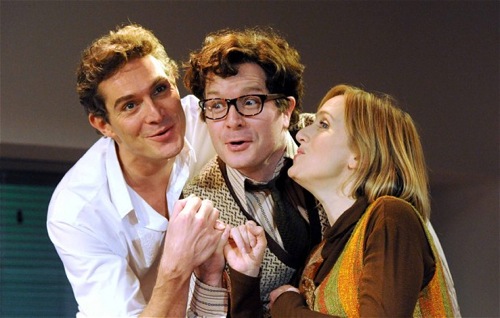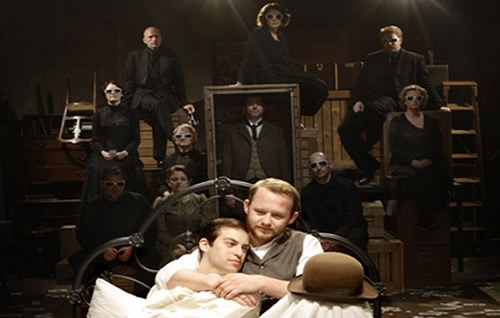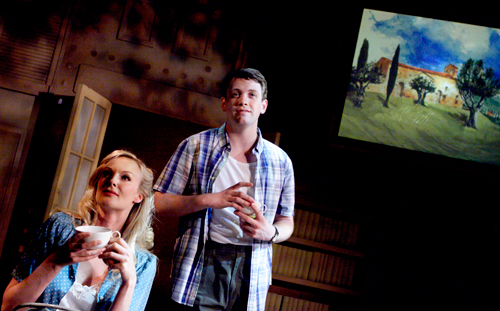
Standing ovations are commonplace in America – a ritual expression of thanks given at the close of a performance. It is, notoriously, more of a challenge to prise this physical expression of gratitude from a British crowd. So, when The Color Purple at the Menier Chocolate Factory succeeded in bringing the audience to their feet not once, but twice, it confirmed the suspicions already in place; we had all just witnessed something extraordinary. Bringing literal meaning to the term ‘show stopper,’ Cynthia Erivo as Celie was awarded the first of these ovations following the show’s climactic 11 O’Clock number, I’m Here. Erivo gives a vocal performance that comes close to taking the roof off. The emphatic ovation was rightly reprised at the curtain call in celebration of the full company and the story’s satisfying denouement.
Doyle’s intelligent staging and design makes the tiny Menier feel refreshingly spacious
Director John Doyle, reputed for scaled-down, simple, elegant productions, has solidified the merits of his methods by colouring this typically lavish musical with nothing other than layered characterisation, vocals and physicality. The Southern scene is painted in meticulous detail, and yet the set consists only of wooden chairs and the occasional sheet. Doyle’s intelligent staging and design makes the tiny Menier feel refreshingly spacious, vast even, whilst the wooden thrust stage plunges the audience into the centre of the story. Inches away from the action, we feel like members of the church congregation, closely observing the tormented, submissive Celie as she silently gathers strength. Each character inspires and influences her, but none more so than Shug Avery played by Nicola Hughes, who teaches Celie to trust in the good will of God and find appreciation for the Earth’s beauty, or the colour purple, for example.
Sadly though, not even Doyle’s diet direction can conceal the clunky mechanics of this musical adaptation – the way in which the form marginalises, simplifies and reduces the devastating issues raised in Alice Walker’s sumptuous and hopeful novel. The role of Mister, for example, (despite being played with grit and ferocity by Christopher Colquhoun) can be likened to a pantomime villain who sees the error of his ways, is redeemed and ultimately forgiven. Still, this production (like Merrily We Roll Along) is the most uplifting, moving rendition of the show to date, proving that the Menier really is the master of reviving difficult musicals. The talent here, both on and off stage, fully earned their double ovation and the rapturous, enthusiastic applause that left our hands sore.
**** (4 stars)
Runs until September 14th
More info



Be the first to comment